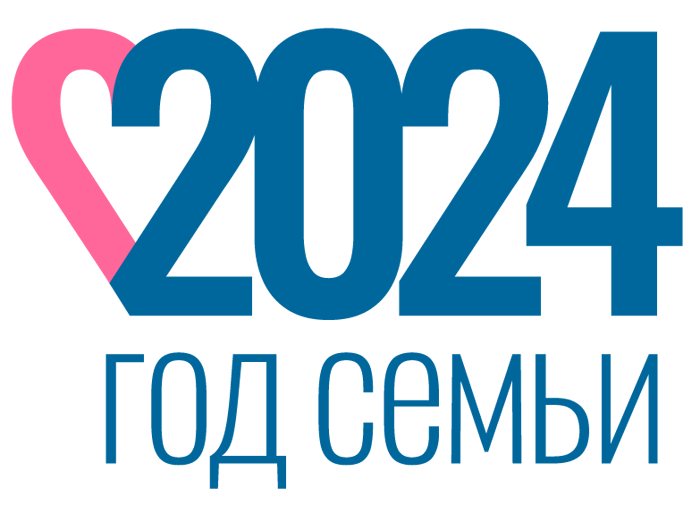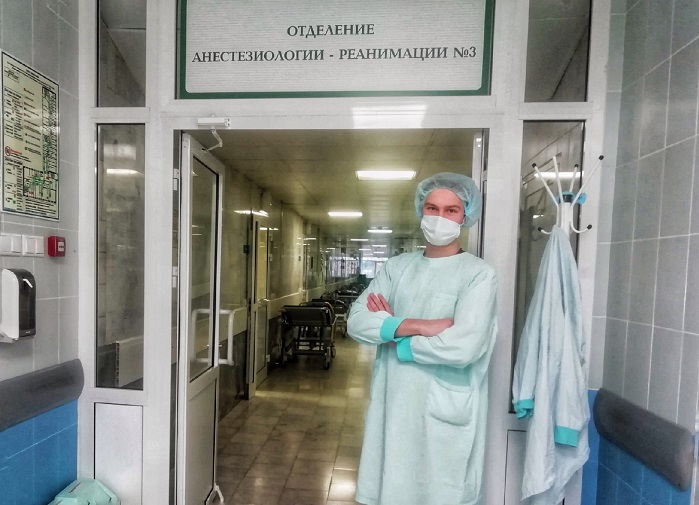 Telegram, ВКонтакте, Одноклассники
Telegram, ВКонтакте, Одноклассники
 Telegram, ВКонтакте, Одноклассники
Telegram, ВКонтакте, Одноклассники

Students of the Ural State Medical University (USMU) are actively working in hospitals in Ekaterinburg and the region, providing support to doctors during the epidemic of coronavirus infection. Today, 580 senior students are employed as junior and nursing staff.
For example, Ivan Usynin and Victoria Gracheva, fifth-year students of the Faculty of General Medicine at Ural State Medical University, have been working for several months in intensive care unit of the neurosurgical ward at Municipal Clinical Hospital No 40 in Ekaterinburg – this institution has become the epicenter of the fight against coronavirus in the region. Their impressions are in our material.
Ivan Usynin:
MCH 40 is really the epicenter of the fight against infection. Even when patients with similar symptoms are brought to our neurosurgical intensive care unit, we initially do not know their coronavirus status. The ward is located on two floors – the third and fourth. The entire third floor was given to patients with suspected coronavirus. But since there are not enough places there, they are transferred to the fourth floor. So we are working cautiously. What else can we do?
As for my duties, I monitor the condition of patients – I register pressure, pulse, saturation. I watch how they breathe on the ventilators, inject drugs according to the prescriptions of doctors. Recently, the load on staff has grown in our department: two nurses went to the hospital due to ARVI, two more were recruited to work at the infectious diseases ward because there is not enough people there. For example, I used to have a load of 160 hours — the usual rate, but now it’s about 200. Sometimes I have to work around the clock, then come home to sleep and then return for a whole day. But the employees in our department help each other with everything.
When we arrive, we are checked for IDs that we really work here, and also measure the temperature. Our building is completely isolated from everyone else. For some time, we had planned operations but now, due to the fact that the third floor is in question (whether infected or not), planned operations are being reduced. Because the intense care patients have reduced immunity – they are on ventilators, and if there is an infection, then the risks are much higher – the condition of the patients will simply worsen.
At the very beginning of the epidemic, of course, the question arose: how will they provide us with protective equipment? We were given respirators, hats, thicker masks, gloves – we follow all possible safety measures.
Victoria Gracheva:
Our work day consists this: we arrive, in the morning other nurses change patients’ beds, collect blood, make all tests, then during the day other examinations are performed – such as, CT, MRI, various manipulations (installing a tracheostomy, gastrostomy) and more operations are being performed. For example, someone can be urgently entered, undergo surgery and then put to our intensive care unit (after neurosurgical operations). Further we conduct supervision, we carry out doctors’ appointments. All patients are in serious condition. If the patient is without complications, and the operation did not last long, then he is extubated (the ventilator tube is removed), but he still remains under surveillance until the next morning, and he is transferred either to the intensive therapy unit ( where they can already sit and eat without help)or the general care ward if not transferred there directly.
To be honest, now it’s scary to work. Because emergency patients come and it is not clear what their status is. But it seems to me that this is a valuable experience, because now there are more experienced people next to me who can teach a lot at the initial stage.
Mom was against me working at all, especially in such epidemic situation. She is very worried, tells me to quit and go home. Dad is ready to come and take me home right now.
But I really like to work, I like my unit, my colleagues. The specificity of these two areas – neurosurgery and resuscitation. If I quit, there would simply be no one to work there.